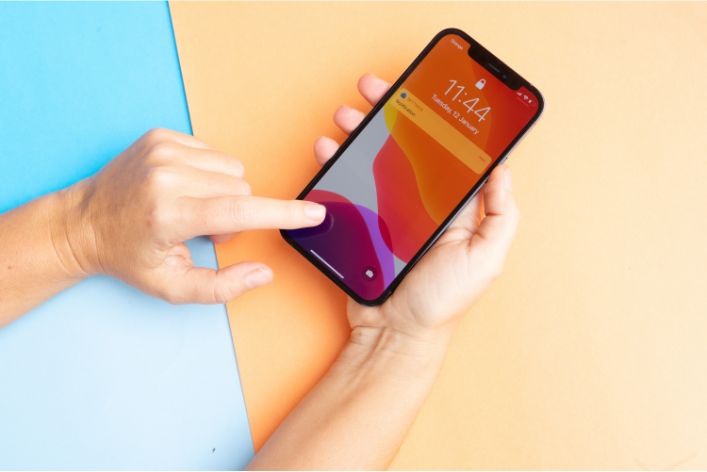Last Updated on May 22, 2023
In today’s world, mobile app development is the backbone for businesses to reach out to their target audience. However, choosing the right platform can be daunting. In this blog post, we will discuss iOS and Android, two of the biggest mobile app development platforms.
Both iOS and Android OS were introduced in the market around the same time; iOS in 2007 and Android in 2008. Since then, they have been constantly improving their features, user experience and providing developers with various tools for developing mobile apps. Today, iOS and Android hold over 99% of the global market share for smartphones.

Choosing the right platform for mobile app development is crucial as it can impact the success of the app. While iOS is known for its premium user experience and security standards, Android offers greater market reach and customizability. Factors such as the target audience, app requirements, and budget should be considered before making a decision.
Read: How Did Others Go From Zero to Coding Hero?
iOS Mobile App Development
Advantages of iOS
- High-end hardware and software integration, which results in better performance.
- Robust security measures, making it less prone to hacks and malware.
- Better user experience due to consistent and standardized design principles and guidelines.
- Higher user engagement and revenue opportunities due to the quality and monetization potential of the App Store.
- More favorable demographics, with iOS users typically having higher income and education levels.
Disadvantages of iOS
- Smaller market share compared to Android, meaning a smaller potential audience for app distribution.
- Strict review guidelines and lengthy approval process can result in delays when launching apps on the App Store.
- Higher cost of entry due to proprietary hardware and software requirements for development and testing.
- Tighter control over the development process, limiting customization options and flexibility for developers.
iOS Programming Languages
- Swift: A modern, fast, and efficient language developed specifically for iOS, with a syntax that is easy to learn for beginners.
- Objective-C: A legacy language commonly used for iOS development prior to the release of Swift.
Overview of iOS App Development Process
- Conceptualization: Define the idea and purpose for the app and conduct market research to identify user needs and preferences.
- Design: Create a wireframe and design prototype to visualize the user interface and user experience.
- Development: Write code using either Swift or Objective-C, and integrate third-party libraries and APIs as needed.
- Testing: Conduct various tests to ensure the app is functional, performs well, and is free from bugs.
- Deployment: Submit the app to the App Store for review and approval, and wait for it to be published.
- Maintenance: Continuously update and improve the app to fix bugs and enhance functionality and performance.
iOS development offers several advantages, such as better performance, robust security, and consistent design principles. However, it also comes with challenges, such as a smaller market share and stricter review guidelines. Developers need to carefully weigh the pros and cons when considering iOS as a platform for their mobile app development.
Read: What are the Core Concepts of Algorithms & Data Structures?

Android Mobile App Development
Android is the most widely used mobile operating system globally, with over 2 billion active users. This OS is open-source and has a vast developer community that makes it easier for developers to get support.
Advantages of Android
- Android has a low barrier to entry, as it uses Java programming language, which is common and easy to learn.
- Developers can easily integrate various third-party libraries and APIs into their applications.
- Android is open-source, which means that developers can easily access and customize the OS according to their needs.
- Google Play Store, the official app store for Android, has a vast user base and offers various monetization options for developers, such as in-app purchases, subscriptions, and advertisements.
- Android provides flexibility in terms of hardware, allowing developers to develop applications for a broad range of devices, including smartphones, tablets, and smartwatches.
Disadvantages of Android
- Android is known for fragmentation, which means that several versions of the OS are currently available, making it challenging to develop applications that work seamlessly across different devices.
- Android is perceived as less secure than iOS, with a higher likelihood of malware and hacking attacks.
- Device performance can vary significantly based on hardware specifications, making it challenging to optimize applications for all devices.
Android Programming Languages
The most commonly used programming language for Android app development is Java. However, developers can also use Kotlin, a relatively new programming language that provides improved safety, security, and speed compared to Java.
Overview of the Android App Development Process
The Android app development process involves several steps, including:
- Ideation and Planning: The first step involves coming up with an idea for the application and planning its development, including the target audience, features, and functionality.
- UI/UX Design: The design is crucial in creating a user-friendly and aesthetically pleasing application. App designers create wireframes, mockups, and prototypes to visualize the application’s design and layout.
- Development: This is the stage where developers write the code for the application. The Android Development Kit provides numerous tools to make the development process easier, such as Android Studio, Android Debug Bridge, and Android Asset Packaging Tool.
- Testing: This stage involves testing the application to ensure it works as intended, has no bugs, and is user-friendly. Developers can use Android’s built-in testing tools or third-party software testing tools for this.
- Launch: Once the app is fully developed and tested, it’s ready to go live. Developers submit the app to the Google Play Store and follow the guidelines and rules set out by Google to ensure that it complies with their standards.
- Maintenance: This stage involves updating the application regularly to fix any bugs and add new features or functionality to keep users engaged.
Developing an application on the Android platform has its unique advantages and disadvantages; the decision to choose Android depends on the developer’s personal preference, the project’s requirements, and the target audience.
Read: How to Learn Object-Oriented Programming Quickly
Comparison of iOS and Android for Mobile App Development
When it comes to mobile app development, iOS and Android are the two most popular platforms. Both of them have their own strengths and weaknesses, which can make it difficult to decide which one to choose. Here are some factors to consider when comparing iOS and Android for mobile app development:
Cost of Development
- iOS app development is typically more expensive than Android app development due to the cost of Apple devices and the need for a Mac computer to develop and test apps.
- Android app development can be done on a PC, which makes it more cost-effective for developers who don’t want to invest in an expensive computer.
Development Time
- iOS app development can take longer due to Apple’s strict guidelines and approval process.
- Android app development is generally faster because Google’s guidelines are less strict and the approval process is quicker.
Development Ease
- iOS app development requires knowledge of Objective-C or Swift programming languages.
- Android app development requires knowledge of Java or Kotlin programming languages.
- Some developers find iOS development easier because of its strict guidelines, which can make it easier to create a more consistent user experience.
User Interface
- iOS is known for its sleek and consistent user interface, which can make apps look more polished.
- Android allows for more customization of the user interface, which can make apps look more unique.
Revenue Generation
- Despite having a smaller market share, iOS users tend to spend more money on apps than Android users.
- Android’s larger market share means there are potentially more users to generate revenue from through advertising or in-app purchases.
Market Share
- Android has a larger market share than iOS, particularly in developing countries.
- iOS has a smaller market share, but its users tend to be more affluent and spend more money on apps.
There is no one-size-fits-all answer to which platform is better for mobile app development. Developers should consider factors such as cost, time, ease of development, user interface, revenue generation, and market share when deciding between iOS and Android. Ultimately, the choice will depend on the specific needs of the project and the target audience.
Read: What Are HTML, CSS & JavaScript in Web Development?

iOS vs. Android: Which is Better for Mobile App Development?
The mobile app development industry is constantly evolving, and it is crucial for businesses to choose the right mobile operating system for their app development. The two most prominent operating systems available today are iOS and Android. While both iOS and Android have their unique features, choosing one over the other depends on various factors such as business goals, audience, budget, and timeline.
Factors to consider when choosing between iOS and Android
Market Share
- Android is the dominant player in the mobile operating system market, with a market share of 86%, compared to iOS’s 13%.
- However, iOS has a more affluent user base, which means businesses targeting a high-income audience may prefer developing for iOS.
Development Costs
- Developing for iOS can be more expensive due to the higher cost of iPhones and Apple’s strict development guidelines.
- In contrast, Android devices are more affordable, and the platform has more flexible development guidelines.
User Experience
- iOS is known for providing a more consistent and smooth user experience across devices since Apple controls both hardware and software.
- However, Android allows for more customization and flexibility, which can result in an app with a unique user experience, which may be more appealing to some users.
App Store Review Guidelines
- Apple’s strict App Store review guidelines ensure that all apps meet high-quality standards, resulting in a smooth and secure user experience.
- On the other hand, Android’s review process is more relaxed, resulting in more app submissions but potentially lower quality control.
Programming Languages
- iOS apps are developed using Swift or Objective-C programming languages, which are comparatively easier to learn and use.
- On the other hand, Android apps are developed using Java or Kotlin, which are more complex languages.
Both iOS and Android are powerful and popular operating systems, and choosing between them depends on several factors. While iOS is known for providing a more consistent user experience and is preferred by high-income audiences, Android is more customizable, affordable, and has more flexible development guidelines. Ultimately, businesses should choose an operating system that aligns with their goals, audience, budget, and timeline.
Read: How to Understand Programming Jargon for Newbies
Additional Resources
Developing mobile apps for iOS and Android platforms require a lot of skill, knowledge, and resources. To help you get started, here are some tools and resources that can aid in your app development journey:
List of tools and resources for iOS app development:
- Xcode – Integrated Development Environment (IDE) used for iOS app development
- Swift Language Guide – Programming language used for iOS app development
- iOS Developer Library – Collection of developer resources for iOS app development
- CocoaPods – Dependency manager for iOS app development
- Ray Wenderlich Tutorials – Collection of tutorials for iOS app development
Read: Coding 101: Kickstart Your Programming Journey
List of tools and resources for Android app development:
- Android Studio – Integrated Development Environment (IDE) used for Android app development
- Kotlin Language – Programming language used for Android app development
- Android Developer Documentation – Collection of developer resources for Android app development
- Gradle – Build automation tool for Android app development
- Android Basics Nanodegree – Course for Android app development by Google
Links to further reading on mobile app development and related topics:
- A Comprehensive Guide To Mobile App Design and Development
- The Ultimate Guide to Making Your Own App
- The Ultimate Guide: How to Make an App
- An Ultimate Guide for Mobile App Development
These resources can be a great starting point for learning and improving your iOS and Android app development skills.
Read: The Major Differences Between Android and iOS
Before You Go…
Hey, thank you for reading this blog to the end. I hope it was helpful. Let me tell you a little bit about Nicholas Idoko Technologies. We help businesses and companies build an online presence by developing web, mobile, desktop, and blockchain applications.
We also help aspiring software developers and programmers learn the skills they need to have a successful career. Take your first step to becoming a programming boss by joining our Learn To Code academy today!
Be sure to contact us if you need more information or have any questions! We are readily available.











